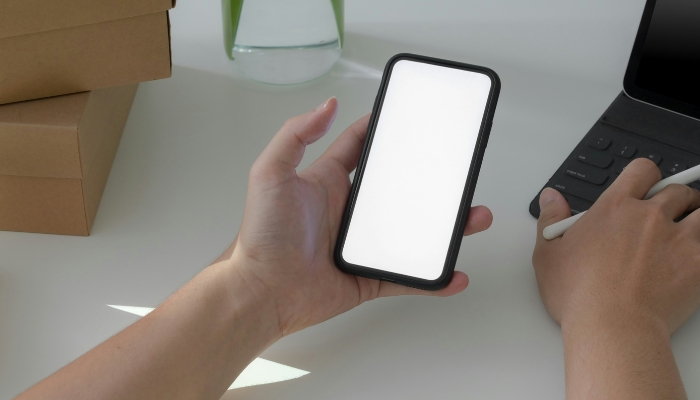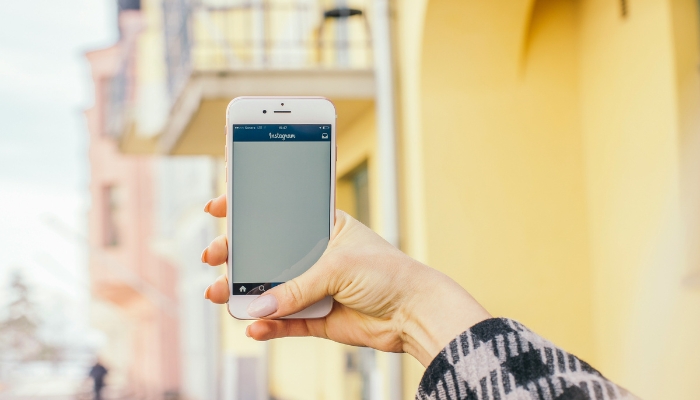
Even though you might think that your IMEI (International Mobile Equipment Identity) number is just a unique identifier for your mobile device, it’s actually much more than that.
Sure, it’s primarily used by your service provider to connect your device to a network, but what can someone do with my imei number? You’ve probably heard the term ‘IMEI cloning’ or ‘IMEI hacking’ and brushed it off as tech jargon. However, these are real risks that can compromise your privacy and security.
Someone with your IMEI number can check if your phone is legitimate or report it as stolen, potentially leading to it being blacklisted. While more sophisticated misuse is less common, it’s important to keep your IMEI number secure and only share it with trusted parties.
In the following discourse, we’ll explore these potential threats and discuss what measures you can take to protect your IMEI number. So, are you ready to unpack the mystery what can someone do with my imei number?
Understanding Your IMEI Number
Before you can effectively use your IMEI number, it’s crucial to understand what it really is and why it’s important.
The International Mobile Equipment Identity (IMEI) is a unique identifier of your mobile device, distinct in its role and purpose when compared to a serial number, highlighting the difference between IMEI and a Serial Number. Just like your fingerprint, no two devices share the same IMEI. It’s this unique characteristic that gives the IMEI its importance in device security.
This 15-digit number is like a license plate for your cellular network device. It’s used by your network provider to identify valid devices and can be employed to prevent a stolen phone from accessing the network. That’s right, in the event of theft or loss, you can call your provider and request them to block or track your device using the IMEI.
Moreover, knowing your IMEI can come in handy when selling or buying a used phone. It helps verify the legitimacy of the device and ensures it’s not blacklisted. So, it’s more than just a device identifier, it’s a crucial tool for device security and verification.
Now that you understand its significance, you’re ready to use your IMEI number effectively.
Potential Misuse of IMEI Numbers

While your IMEI number holds significant importance for device security and verification, it’s also crucial to be aware of its potential misuse. If fallen into wrong hands, it could be used for a range of nefarious activities. On a simple level, your IMEI number can be used with an IMEI mobile phone tracker tool, potentially leading to privacy invasion.
The potential misuse of IMEI numbers doesn’t stop there. Unauthorized access to your IMEI could facilitate identity theft. Cybercriminals could use your unique IMEI to impersonate your device or even clone it, gaining access to personal and sensitive information.
Moreover, someone with your IMEI could report your phone as stolen and have it blacklisted. This means your phone could be rendered useless even if it’s in your possession.
In a worst-case scenario, criminals could link your IMEI with criminal activities, leading to potential legal complications. Therefore, it’s essential to keep your IMEI safe and confidential. Always be cautious when sharing this number and only do so when absolutely necessary, such as for warranty or insurance purposes.
How Hackers Exploit IMEI Numbers?
Understanding how hackers exploit IMEI numbers is crucial for your digital safety. IMEI, or International Mobile Station Equipment Identity, is a unique identifier for your android device. It’s like a fingerprint that cellular networks use to authenticate your phone.
Now, think of identity thievery. Hackers can exploit the information we get from IMEI number to clone your device. They create a duplicate of your phone, fooling cellular networks into thinking it’s the original. This allows them to make calls, send texts, and consume data on your account.
Ethical hackers, on the other hand, use IMSEI numbers for good. They help identify vulnerabilities in systems and work to fix them, ensuring your digital safety. But unethical hackers exploit these numbers for personal gain. They might sell your IMEI number on the dark web or use it to unlock stolen phones.
Preventive Measures for IMEI Safety

Given the potential risks associated with your IMEI number, it’s crucial to take preventative measures to ensure its safety.
The IMEI number is a unique identifier for your mobile phone equipment, and if it falls into the wrong hands, it could lead to serious consequences.
Firstly, always keep your device secure. Don’t share your IMEI number unless it’s necessary and with trusted individuals or organizations. This is one of the most basic preventive measures for IMEI safety.
Secondly, if your phone is lost or stolen, immediately contact your mobile carriers. They can blacklist your IMEI, making your device useless to thieves. This is an essential part of device tracking and can help protect your personal information.
Additionally, install a reliable anti-theft app. These apps can help in device tracking and securing your data. Some even allow you to remotely wipe your phone if it gets lost or stolen.
Lastly, be wary of suspicious links and emails. Cybercriminals often use these to trick you into revealing your IMEI number. Remember, your IMEI is like the DNA of your phone. Protect it as you’d any other personal, sensitive information.
Legal Protections and Your IMEI
Often, you’re not alone in protecting your IMEI number, as there are laws in place to safeguard your personal information. These legal protections can significantly reduce the risks associated with someone else getting a hold of your IMEI number.
- Cellular Carrier: Your cellular carrier has a legal obligation to protect your personal information, including your IMEI number. They can’t share your IMEI number without your consent.
- Device Manufacturer: Similarly, your device manufacturer can’t disclose your IMEI number to third parties without your approval.
- Government Agencies: Government agencies such as the Federal Communications Commission (FCC) enforce laws and regulations that protect your IMEI number. They also prosecute violations relating to the mishandling of such data.
- Legal Protections: Laws like the Electronic Communications Privacy Act (ECPA) and the Telecommunications Act prohibit unauthorized access, use, and dissemination of your IMEI number.
Should your IMEI number be compromised, you can report it to your cellular carrier, device manufacturer, or appropriate government agencies. They’re obliged to act and ensure your digital security.
Real-Life Incidents Involving IMEI Misuse

The International Mobile Station Equipment Identity (IMEI) number, a unique identifier for cellular devices, plays a crucial role in our digital lives. However, its misuse has led to various criminal activities. Here, we delve into some real-life incidents to understand the gravity of IMEI misuse.
The Case of Cloned Cell Phones
In a high-profile case, criminals cloned multiple cell phones using stolen IMEI numbers. They replicated the IMEI of legitimate phones onto counterfeit phones, allowing them to make calls and use data that were billed to unsuspecting victims.
This not only caused financial losses but also led to law enforcement agencies tracking innocent individuals. The culprits were eventually apprehended, highlighting the need for tighter security around mobile networks.
Dual-SIM Phone Scam
A group of fraudsters exploited the dual-SIM phone feature, using one legitimate and one cloned IMEI in the same device. This made it challenging for network carriers to detect the fraudulent use.
Victims found charges for services they never used, leading to an investigation that uncovered a large-scale IMEI cloning operation. The incident raised questions about the vulnerabilities in cellular network carrier systems.
Bank Accounts Compromised Through IMEI
In a startling incident, hackers used an IMEI number to gain remote access to a victim’s phone. They intercepted bank emails messages and confirmation text messages, enabling them to transfer funds from the victim’s bank accounts. This case was a wake-up call about the dangers of linking sensitive financial information to mobile phone networks.
Device Location Tracking and Stalking
A disturbing use of IMEI numbers involved stalkers tracking the device location of their targets. By illegally obtaining the IMEI, they could monitor the whereabouts of individuals, infringing on their privacy and safety. This led to significant concerns about phone hacking and the need for making every device malware proof.
Legal Actions and Outcomes
In response to these incidents, law enforcement agencies and counterintelligence agencies have stepped up efforts to combat IMEI-related crimes. New laws have been enacted, making it illegal to alter or clone IMEI numbers. Network carriers and cellular services are now more vigilant, implementing systems to detect and block phones with suspicious IMEI activity.
Additionally, customer service teams in companies like Apple Support Community have been trained to assist customers in securing their device settings and reporting any suspicious activity.
In conclusion, these real-life cases demonstrate the critical need for awareness and protective measures against IMEI misuse. From individual smart phone cleaner applications to carrier porting safeguards, each layer adds an extra layer of security. As technology evolves, so do the tactics of criminals, making it imperative for users and service providers to stay vigilant and proactive in protecting their actual device and personal information.
Conclusion
So, your IMEI number’s crucial, but it’s not something to hand out casually. It could be exploited by hackers for sinister purposes, from cloning your phone to tracking your location.
Stay vigilant, use preventive measures to keep it safe, and leverage legal protections if necessary. Remember, knowledge is power – understanding the potential risks and how to combat them is your first line of defense.
FAQs on What Can Someone Do With My IMEI Number
What is an IMEI Number and How Can I Find It?
The International Mobile Station Equipment Identity (IMEI) is a unique identifier for every cellular device. It’s used by mobile phone networks to validate devices on their network. To find your IMEI, you can usually dial *#06# on your phone, and the number will be displayed. Alternatively, it’s often listed in the device settings or on the phone’s battery or card tray.
Can Someone Hack My Phone Using My IMEI Number?
While your IMEI number alone doesn’t give hackers physical access to your phone, it can be misused in other ways. For instance, with your IMEI, a hacker could potentially report your phone as stolen and get it blocked from network carriers. However, accessing your personal data or installing malware requires more than just an IMEI number.
Is It Safe to Share My IMEI Number?
Generally, it’s safe to share your IMEI with trusted entities like your mobile network carrier or law enforcement agencies if needed. However, you should avoid sharing it publicly or with untrusted sources, as it could lead to misuse, like IMEI cloning or fraudulently reporting your device for registration purposes.
What Should I Do If My IMEI Number Is Misused?
If you suspect your IMEI number is being misused, contact your service provider immediately. They can take steps like blocking or tracking the device location. Additionally, reporting the issue to law enforcement agencies is crucial, especially if the misuse involves criminal activities like fraud or stalking. It’s also wise to change your device settings to enhance security and consider using services like Apple Support Community for guidance.